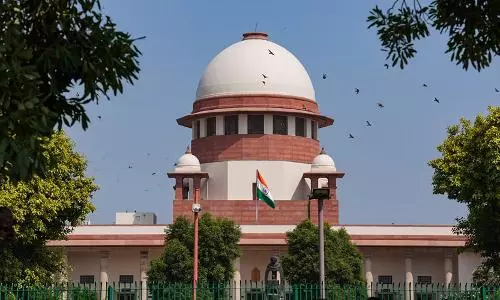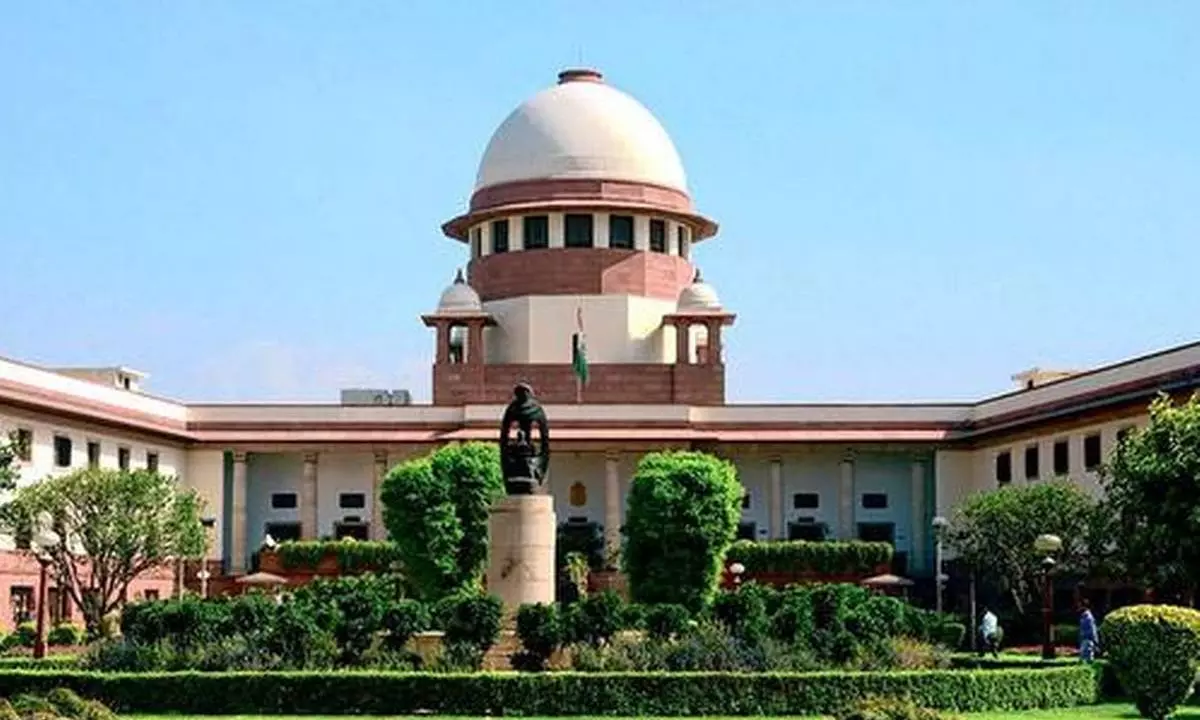
Maratha quota over 50% limit unconstitutional: Supreme Court rules
text_fieldsNew Delhi: The Supreme Court on Wednesday struck down the Maharashtra law granting reservation to the Maratha community in public education and employment exceeding the 50 per cent cap set by Indra Sawhney judgment.
Refusing to consider reviewing Indra Sawhney verdict of 1992, the top court said it did not find any exceptional circumstance to justify the grant of reservation to Marathas in excess of 50% ceiling limit as a Socially and Economically Backward Class.
"Exceeding ceiling limit of 50 per cent laid down by Indra Sawhney is violative of Articles 14 and 15," said a five-judge Constitution Bench headed by Justice Ashok Bhushan. The top court said the people from the Maratha community cannot be declared as educationally and socially backward.
The top court struck down Maharashtra State Reservation for Socially and Educationally Backward Classes (SEBC) Act, 2018 which extends reservation to the Maratha community and held that the Act is unconstitutional.
"Neither the Gaikwad Commission nor the High Court has made out any situation for exceeding the ceiling of 50% reservation for Marathas", the Court held in the judgment.
The top court emphasized that exceeding the 50 per cent limit without exceptional circumstances violates Article 14, and it held that the 2018 act as amended in 2019 exceeds the limit without any exceptional circumstances.
The unanimous judgment was delivered by a bench also comprising Justices L. Nageswara Rao, S Abdul Nazeer, Hemant Gupta and S. Ravindra Bhat.
The pleas before the Constitution Bench challenged the Bombay High Court judgment passed in June 2019 and submitted that the Socially and Educationally Backward Classes (SEBC) Act, 2018, which provided for 12% and 13% quota to the Maratha community in education and jobs respectively, violated the principles laid in the case of Indra Sawhney v. Union of India (1992) as per which the Apex Court capped the reservation limit at 50%.
The Bombay High Court, while upholding the Maratha quota, held that 16% reservation is not justifiable and ruled that reservation should not exceed 12% in employment and 13% in education as recommended by the State Backward Commission.
On September 9, 2020, a three-judge Bench of the Supreme Court referred the cases to a larger Bench to determine the issue of whether the State Government has the power to declare a class as Socially and Economically Backward after the Constitution (102nd) amendment.
While referring the case to a larger bench, the 3-judge bench had also stayed the operation of Maratha reservations.























